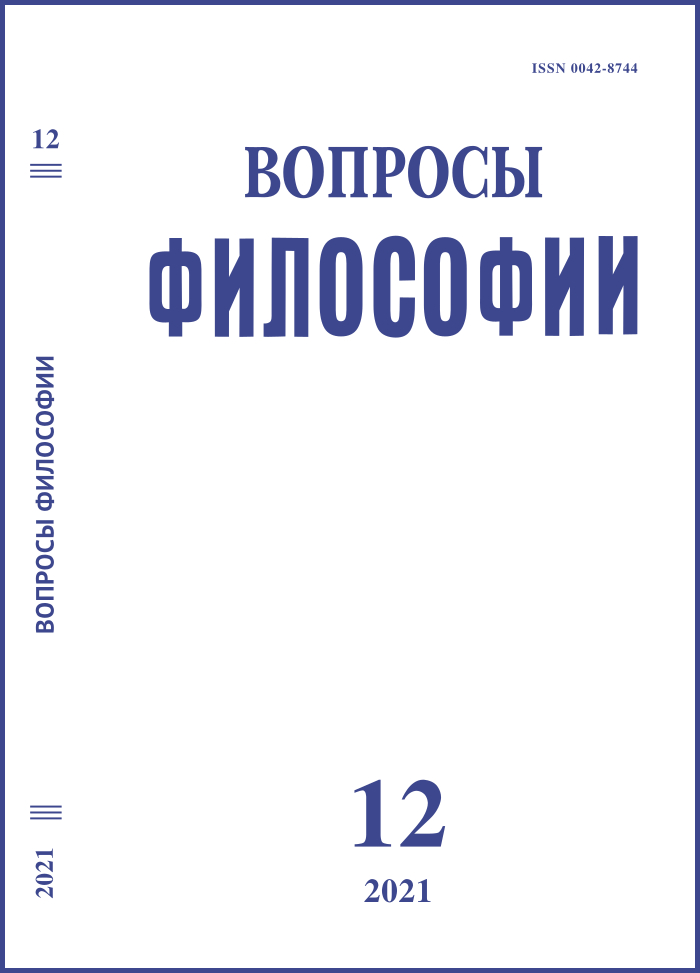A Reason and a Spirit: Body without Organs
DOI:
https://doi.org/10.21146/0042-8744-2021-12-123-126Keywords:
Kant, Cogito, Enlightenment, Body without Organs, Deleuze, whole, Mind, autonomy, organization.Abstract
This article is devoted to possible types of organization of global AI and possible measures to counter the loss of autonomy by individuals – their transformation into HomoCell – human cells of a more global organism. The text of Immanuel Kant What is Enlightenment? Was chosen as a guideline. The author emphasizes that as the goal of the Enlightenment, Kant sets the task – the acquisition of independence by individuals in the use of their own mind. The aforementioned work remains one of the main programmatic texts of the Enlightenment, which, according to the author, is not over yet. The article notes that an autonomous or independent individual is an exclusion from society, literally. However, the connection of such subjectivization with marginality introduces the binary opposition norm/abnormality. The idea is that this dichotomy creates two opposing areas in the field of culture, thus making it impossible to either indicate or think over a balanced solution to the problem posed by Kant. The author proposes to trace the genealogy of the development and addition of the concept of Cogito – from Descartes to Deleuze – as the basis for the interpretation of the subject, to introduce it into the theory of systems, and, thereby, rised above oppositions.

